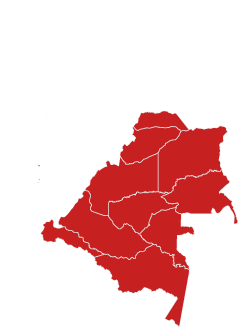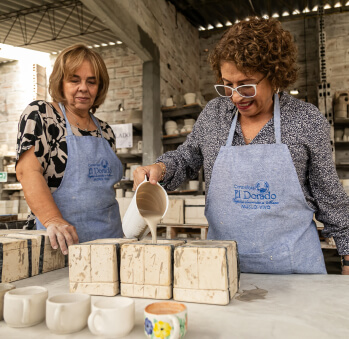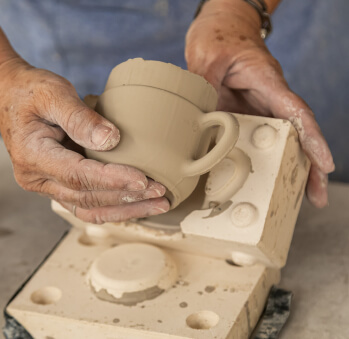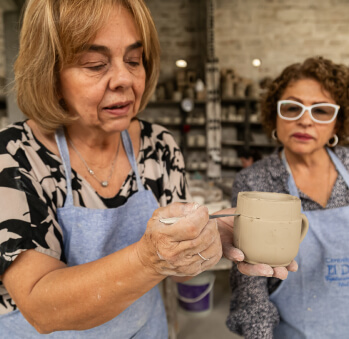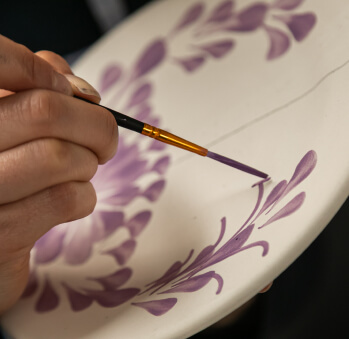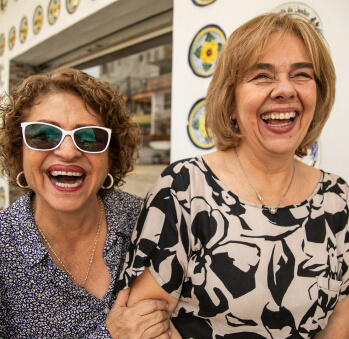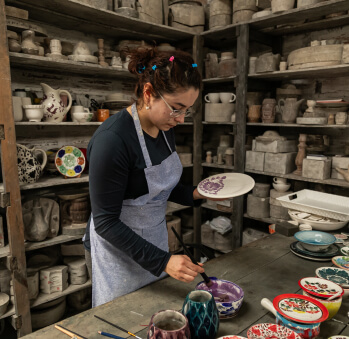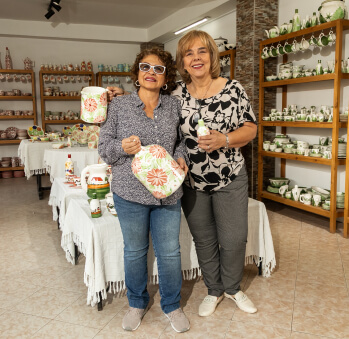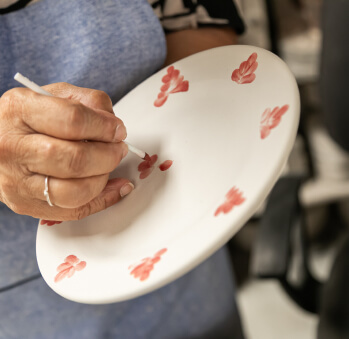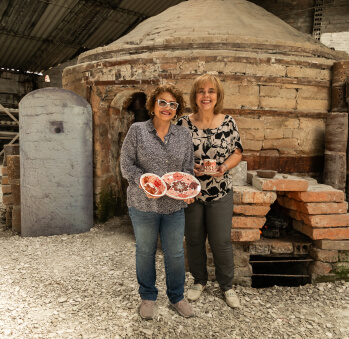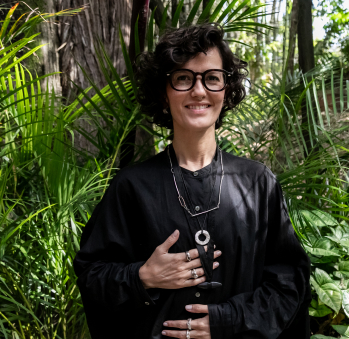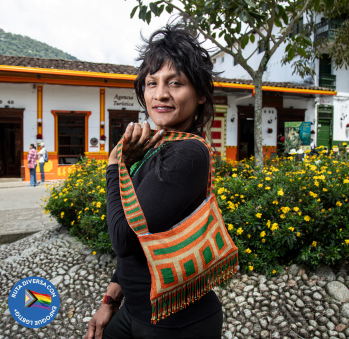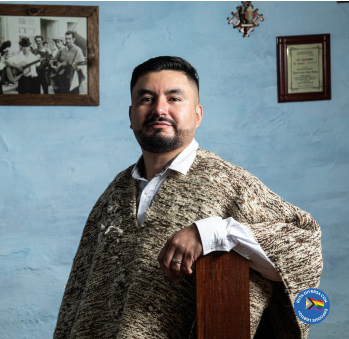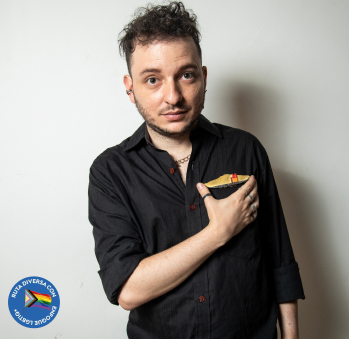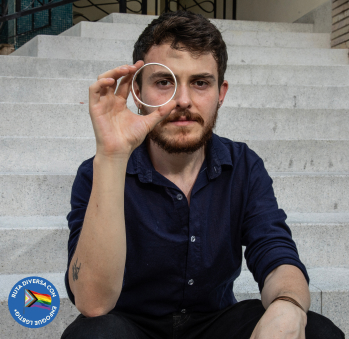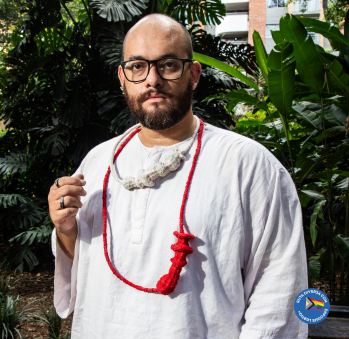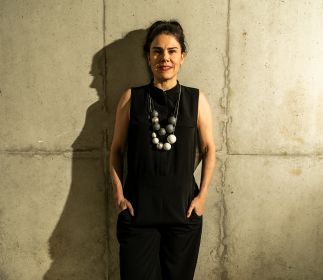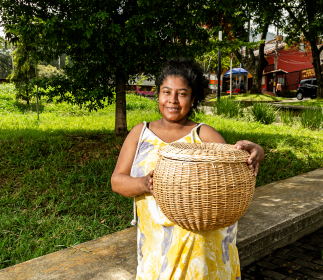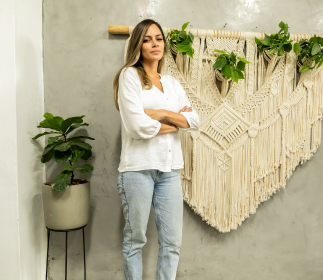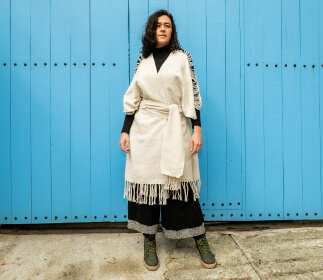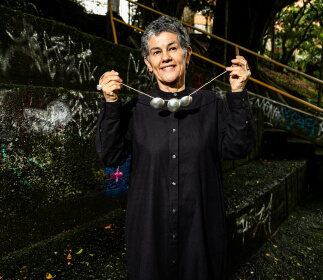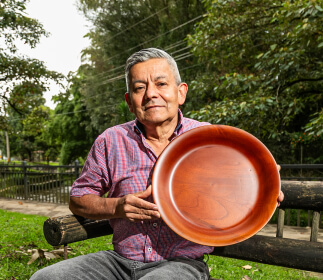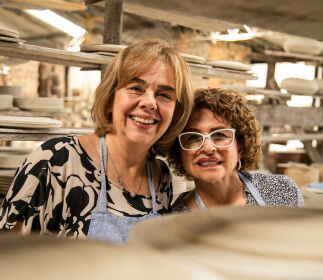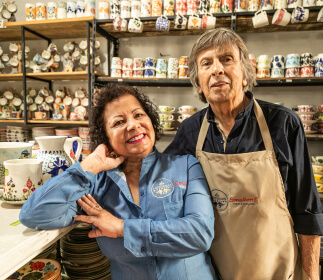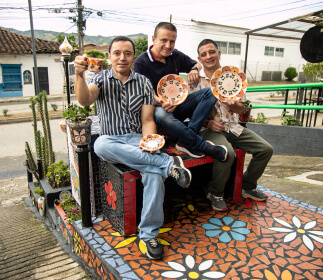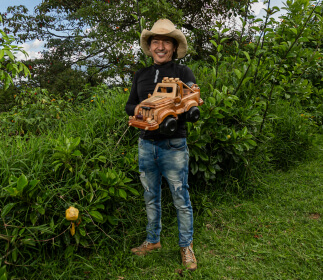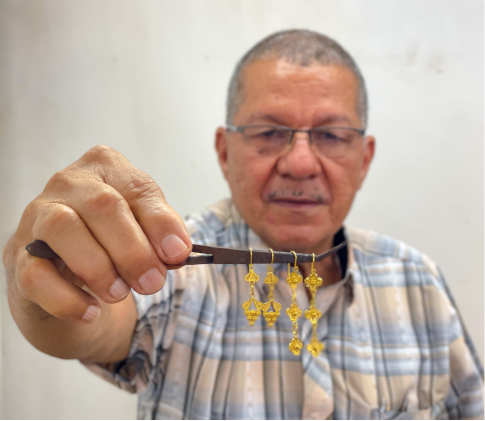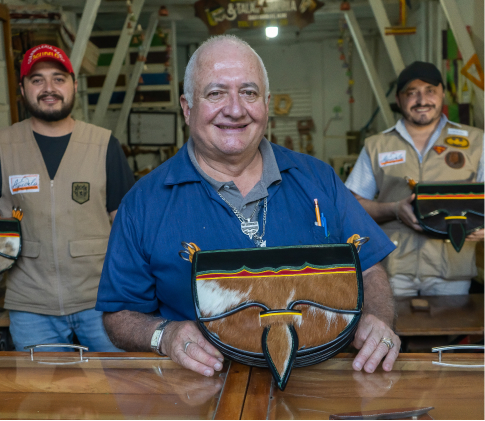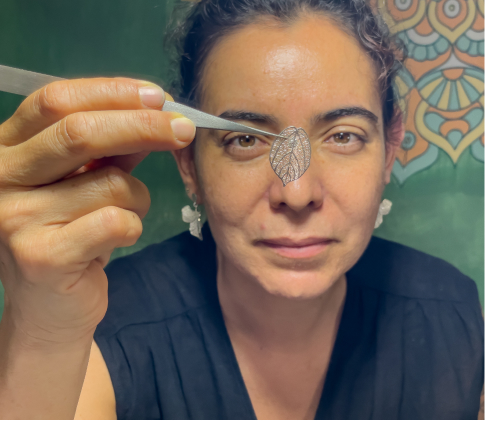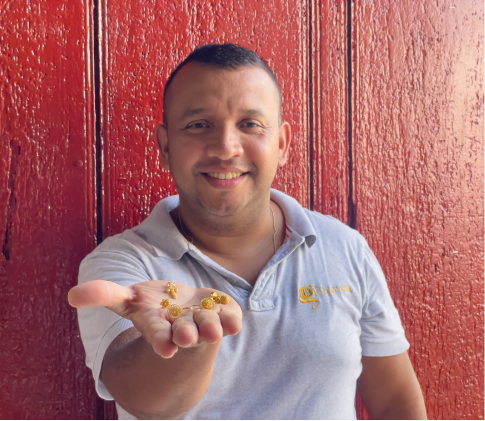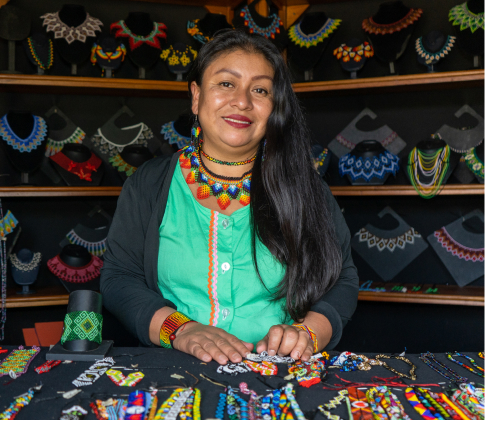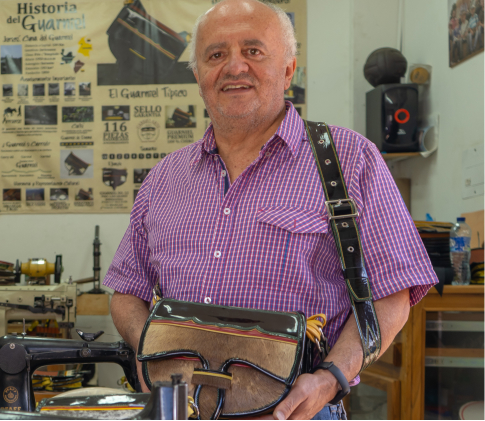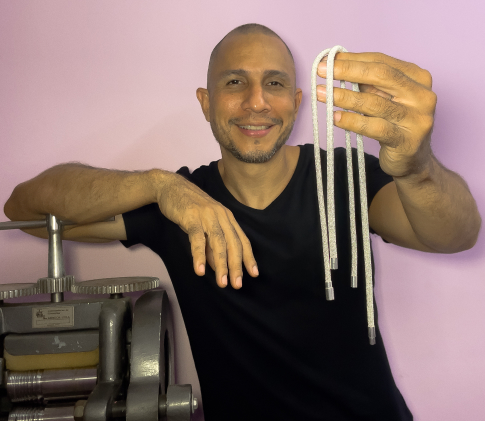Gladys y Fanny Bello
Taller: Cerámicas El Dorado
Oficio: Alfarería y cerámica
Ruta: Ruta Antioquia
Ubicación: Carmen de Viboral, Antioquia
Las vajillas de Cerámicas El Dorado, ese proyecto que creó don Pedro Bello en 1966 y que sigue en pie hoy en día en manos de sus hijas Gladys y Fanny, y de su hijo Óscar, preservan la historia centenaria de un pueblo alfarero, de sus ires y venires, y de su resistencia. Todo se remonta a finales de 1800, cuando un caldense vio el potencial de los suelos del Carmen de Viboral. Vio sus arcillas blancas, y vio el cuarzo y el feldespato de sus alrededores. Empezó a montar empresa, y siguiéndolo llegaron otras familias. Así, para la primera mitad de 1900, llegaron a haber 24 fábricas de cerámica en el municipio. El trabajo de todos se volvió ese. La más grande fue Continental, la fábrica que todos recuerdan porque estuvo al frente de las exportaciones y de mejorar la calidad de las cerámicas, pero de la que hoy en día no queda más que el terreno donde funcionó.
Fue en plena época dorada que llegó de Chiquinquirá un jóven Pedro Bello al Carmen. Se había ganado una beca para aprender el oficio en el internado de la Escuela Industrial. Así que estudió, y una vez se graduó se convirtió en profesor de la misma escuela, al tiempo que iba montando, poco a poco, su propio taller, y haciendo su familia junto a Fabiola Rendón, una carmelitana a la que conoció en la notaría del pueblo. Empezó haciendo las bolas de porcelana que sirven para triturar los minerales en los molinos de bolas, a los que también les hacía los revestimientos. Después hizo materas, que quemaba en esos antiguos hornos gigantes de carbón en los que todo se medía al ojo, mucho antes de que Continental tecnificara las quemas. Pedro Bello se dio a conocer, además, por sus rubicones, unos vasos cerveceros sellados con esmaltes de una sola quema que no se quebraban con nada, y fue de los primeros en llevar sus productos a ferias.
Hasta que llegó la crisis. La misma violencia que afectó a tantos en el país entre los setenta y noventa dejó a los ceramistas del Carmen sin clientes y sin manera de sacar a vender sus productos. Hasta Continental quebró, y casi todos los talleres tuvieron que cerrar, excepto dos. Uno de ellos fue El Dorado de don Pedro Bello, quien siguió haciendo sus materas, y quien después, con la ayuda de su hija Gladys, empezó a asociarse y hacer las vajillas por las que hoy los conocemos en el proceso de recuperarse de la crisis.
Lo lograron. Sumaron referencias a su catálogo ¡y pintas!, esas preciosas decoraciones florales hechas con pigmentos minerales y agua sobre las vajillas. Afortunadamente no solo ellos se recuperaron, sino que otros empezaron a abrir sus talleres, retomando esa costumbre que volvió al municipio famoso. Si bien Cerámicas El Dorado no es el taller más grande, sí es el más antiguo. Por eso cuentan la historia de su pueblo ceramista conservando el horno de carbón de colmena, el torno mecánico, el fritador, y las herramientas que se usaban hace más de cien años. Los encargados de mantener su legado en pie han sido los mismos hijos de Fabiola Rendón y Pedro Bello, Óscar en la producción, Gladys en la parte comercial, y Fanny, quien se sumó al equipo después de pensionarse para apoyar la faceta turística del negocio familiar. Con esas ganas de recibir visitantes, y de contarles su historia, te mostrarán cómo hacen la pinta que se inventó su padre y que los sigue representando tan bien, la Azul tradicional, y las que se han sumado a su catálogo gracias a los aportes de las habilidosas pintoras carmelitanas, que llevan sus propios nombres: Esperanza, Carmelita, Gloria, Teresita y Floralba.
Artesanías
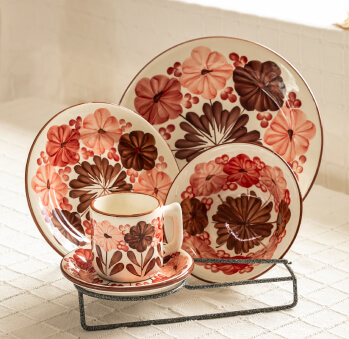
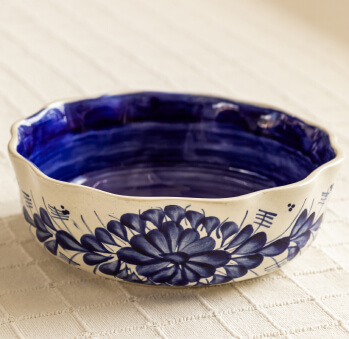
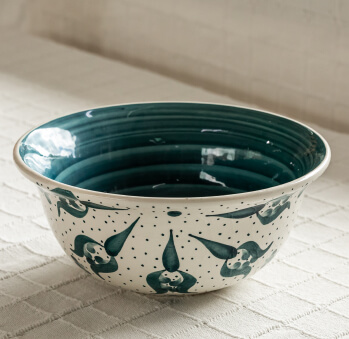
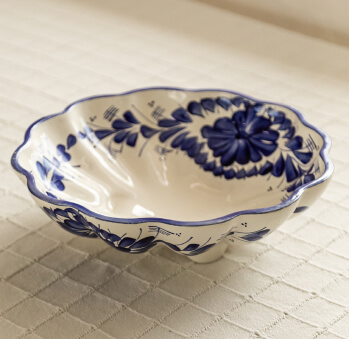
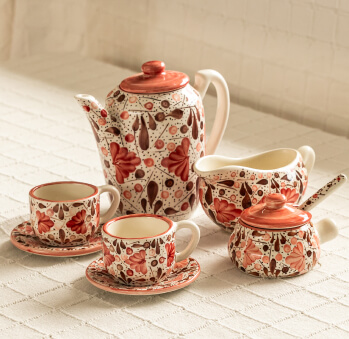
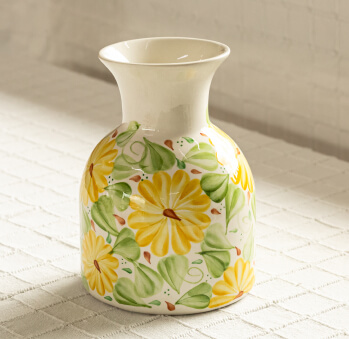
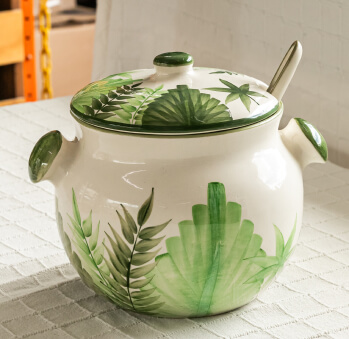
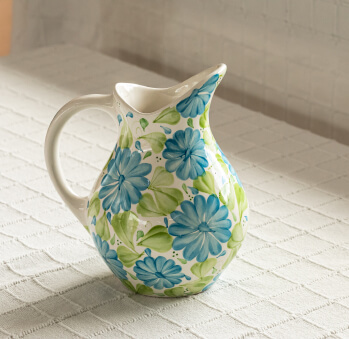
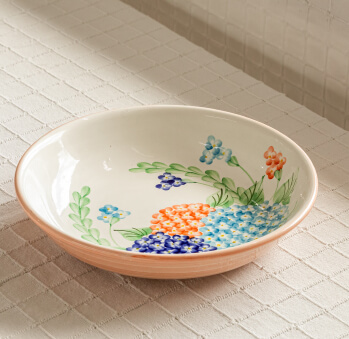
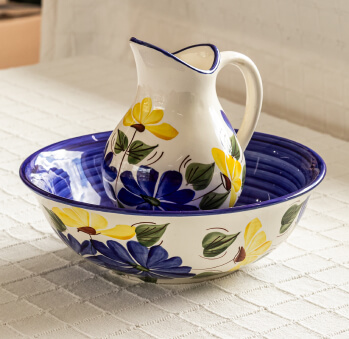
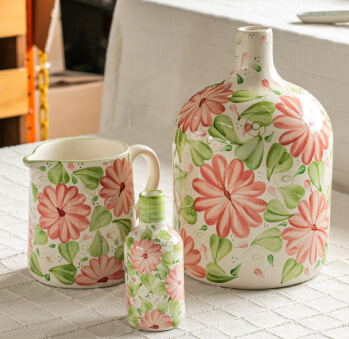











Artesanos de la ruta
Artesanos de la ruta
No puede copiar contenido de esta página

